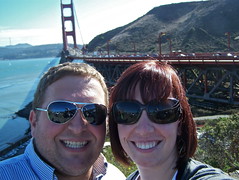 A couple days ago, John Shore, Dan Savage, Wayne Besen, and Evan Hurst launched the Not All Like That Project, or NALT as it’s commonly known. It’s a collaborative project for Christians all over the globe to voice their support for GLBTQ people in our communities and in our world. Like so many people, when I heard about the NALT project I was very excited. So many people raising their voices for equality and inclusion can be a really emotional thing.
A couple days ago, John Shore, Dan Savage, Wayne Besen, and Evan Hurst launched the Not All Like That Project, or NALT as it’s commonly known. It’s a collaborative project for Christians all over the globe to voice their support for GLBTQ people in our communities and in our world. Like so many people, when I heard about the NALT project I was very excited. So many people raising their voices for equality and inclusion can be a really emotional thing.
But the more I tried to find words to say, the more difficult it became. It started feeling hollow or fake. As a straight, white, educated, middle-class male, it seemed everything I said sounded whiny. It sounded like I was caught red-handed in my societal privilege and was trying to rationalize it away by saying, “But we’re not all like that.”
So instead, I did something different. Instead I talked about how God is not like that. Here it is:
.
For those of you who are not able to watch the video, here’s a transcript.
Hi. My name is Eric Clapp and I’m a Lutheran pastor and a lifelong Christian. I wanted to make a video to support the NALT campaign, but the more I tried, the more it seemed like I was trying to justify or explain away something. As a straight, white, educated, middle-class male, it seems overly defensive and verging on just plain whiny to say, “But we’re not all like that.”
So let me say something a little different. I’m not going to tell you some self-aggrandizing story about how I’m not like that. Or how we’re not all like that. But rather that God’s not like that. If you’ve ever been bullied, put down, or told that God will love you if you just act like this. Or if you just stop doing that. That’s what happens when humans try to play God. But God’s not like that.
I know that the church has disenfranchised and downright shamed so many of you and for that I could never apologize enough. But I can tell you this. God’s not like that.
In the 66 books that make up the library of Scripture, we are told a number of things about God. In the 27 that make up the New Testament, again and again we are confronted with the truth that God is fundamentally about love, grace, and wholeness.
In the Gospel of Matthew some of the keepers of the law come up to Jesus and ask him which commandment in the law is the greatest. Jesus says to them,
“You shall love the Lord your God with all your heart, with all your soul, and with all your mind.” This is the greatest and first commandment. And a second is like it: “You shall love your neighbor as yourself.” On these two commandments hang all the law and the prophets.”
The entire law hangs on those two commands. Love God. Love your neighbor. Nowhere in there does Jesus say anything discriminatory about anyone. And he wouldn’t say that either. Because God’s not like that.
I am deeply sorry for the pain you have experienced at the church’s expense. I know I can’t do anything to take that away, but I can only say over and over again: God’s not like that.
Jesus says, “I came that you may have life and have it abundantly.” God wants only what is life-giving for you. God loves you. God accepts you. No matter who is against you, God is for you. Because God IS like that.
Cheers,
Eric



















